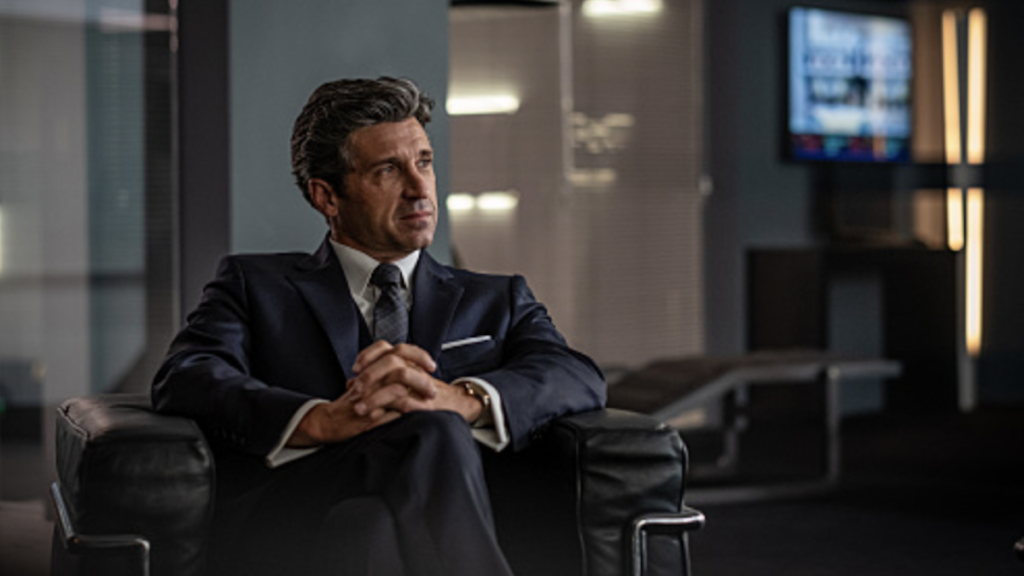Lux Vide CEO Explains Why Being Acquired by Fremantle Was the Best Way Forward
Office With a View: Luca Bernabei tells TheWrap why a ”federation of producers“ will help them all survive coming economic hardships
“They are putting together a kind of federation of producers, really good producers, from all over the world, from the U.K., Israel, Italy, France,” the CEO told TheWrap for this week’s Office With a View. “So this is, to me, a smart idea for doing business, because usually producers don’t get along so well,” he continued. “I mean, there is always a kind of competition. Instead, in this way, we are really kind of a family now.”
While Bernabei stayed in his executive position within the company, and his family maintains a 30% stake, giving up control wasn’t easy by any means. Since 1992, Lux Vide has expanded to deliver a slate of incredibly successful shows — such as “Medici,” “The Bible” and “Leonardo” — not only to local broadcasters, but to networks and streamers across the world including Amazon Prime Video, Netflix and Sky.
“It was not simple, because for an entrepreneur the company is like your kids,” the CEO said of the deal. “This company was founded by my father. But what is important now and, I think, will always be is content.”
Read on as Bernabei discusses the growing global market for local-language programming and what it takes to sell their projects across the world.
This conversation has been edited for style and length.
How is the Fremantle acquisition going to move Lux Vide forward?
It’s a strange moment. Our business is going so fast. What is going to happen in the future? Less money. To me, the way of approaching is to share ideas and projects together. That is going to be the way of overcoming the lack of money that is to happen.
As you talk about the importance of the content you’re making, I want to ask about the increase in popularity of in-language content, especially among English-speaking audiences. How are you capitalizing on that?
There has been kind of a border. The streamers are changing the market, making content in local languages and giving it to the world. We are Italians. Nobody speaks our language [in English markets]. [Not many] speak Korean. That has been the big revolution of the past 15 years. So, you need to be able to get these opportunities, which is not easy. You need a really high concept. And because we’re European producers, we’re compared to the production coming from [the U.S.], which has three or four times the money. There’s always a way of [overcoming] this — it is our job. You need to be really smart. So, we’ve started producing all kinds of different products, which are ready to go to the international markets. We are financing [our projects] by selling our content all over the world.
At the end of the month, The CW will air the second season of “Devils,” which stars Patrick Dempsey. I think this is in line with what you’re getting at. What makes “Devils” the type of show you can sell internationally?
A strong idea seems banal, but it’s not banal. I was working inside a book shop and found a book with this title. I was developing a completely different concept for “Devils.” But then when I was reading the book, and it was really important to me, because the important choices of politicians all over the world are impacted by the economy. The economy may completely change the story of a country. I’m surprised that it is one of the few shows in the world to uncover what was going on in 2012 in Europe. Now, with the second season, it’s 2016, and it’s diving into issues from that year — Trump’s election, data wars, Brexit, et cetera. The idea is to dramatize all of that.

Well, and it stars Patrick Dempsey. Do you think having someone with that level of fame in the U.S. helps?
Yeah, Patrick is someone who can be recognized as a seasoned actor, and he’s so intelligent. He’s really in it. He knows everything. He’s so curious. I believe that’s the reason why he did it, because he’s so cultivated and he knows everything about politics. He always wants to be challenged by what he’s doing. And we can’t ever say where we are [filming]. He has fans from 12 years old to 60. The last day we were shooting, I don’t know how they discovered where we were shooting. We couldn’t shoot, because they were screaming.
How has the pandemic shifted things, if at all?
Apart from what you have to do to keep production going, which is tough, it’s complex. But to me, it’s changing even creativity wise. I’m choosing projects that are going in a completely different direction, because people want to escape by watching something that’s completely different from their normal life. Regardless of all these market shifts, these big mergers, et cetera… content will always be the most important. If you know how to produce the right content, if you know the right people, that’s the secret.


